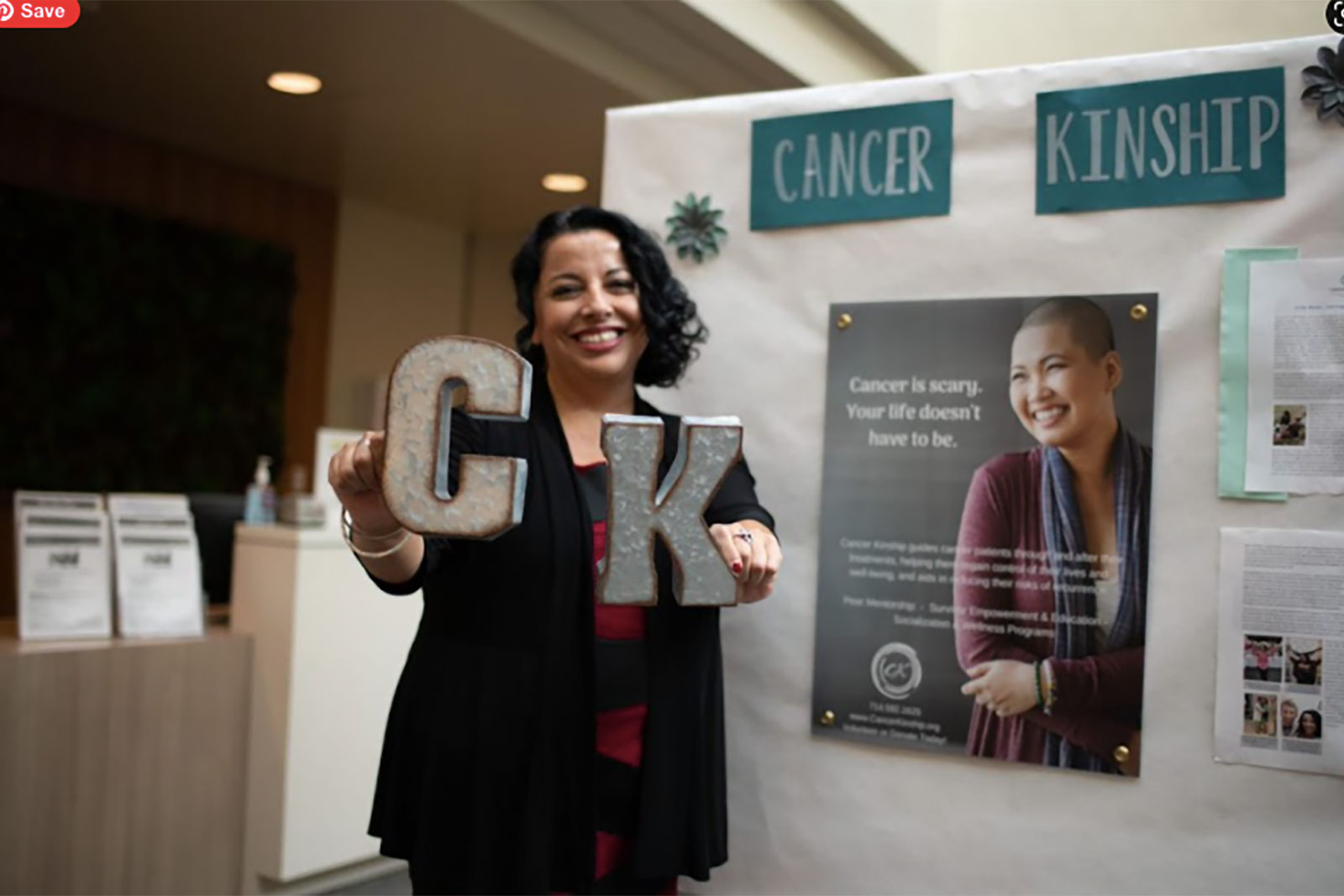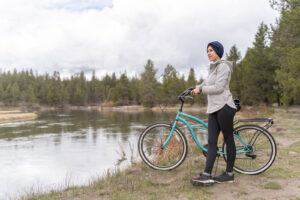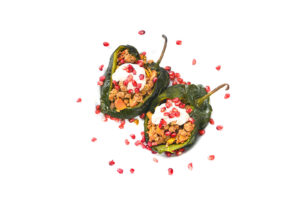Even over Zoom, Yoli Origel, executive founder and director of Cancer Kinship, has a bubbliness and passion for helping others that shines through the screen. After beating breast cancer, Origel founded Cancer Kinship, an organization based out of southern California that is dedicated to helping cancer warriors and thrivers find the support they need in each other.
“This December, I will be celebrating 15 years of my diagnosis,” says Origel. “Most people don’t think of their diagnosis as a day to celebrate but I do and I know that a lot of cancer patients feel the same, because it’s the day I realized how much I appreciated my life and how much I love my family and really valued my health. Fifteen years is an amazing milestone and I feel really blessed.”
When Origel was a child, her mother was also diagnosed with breast cancer in her 30s; she died at 42 due to metastatic breast cancer. Origel’s own breast cancer diagnosis was at 31 years old.
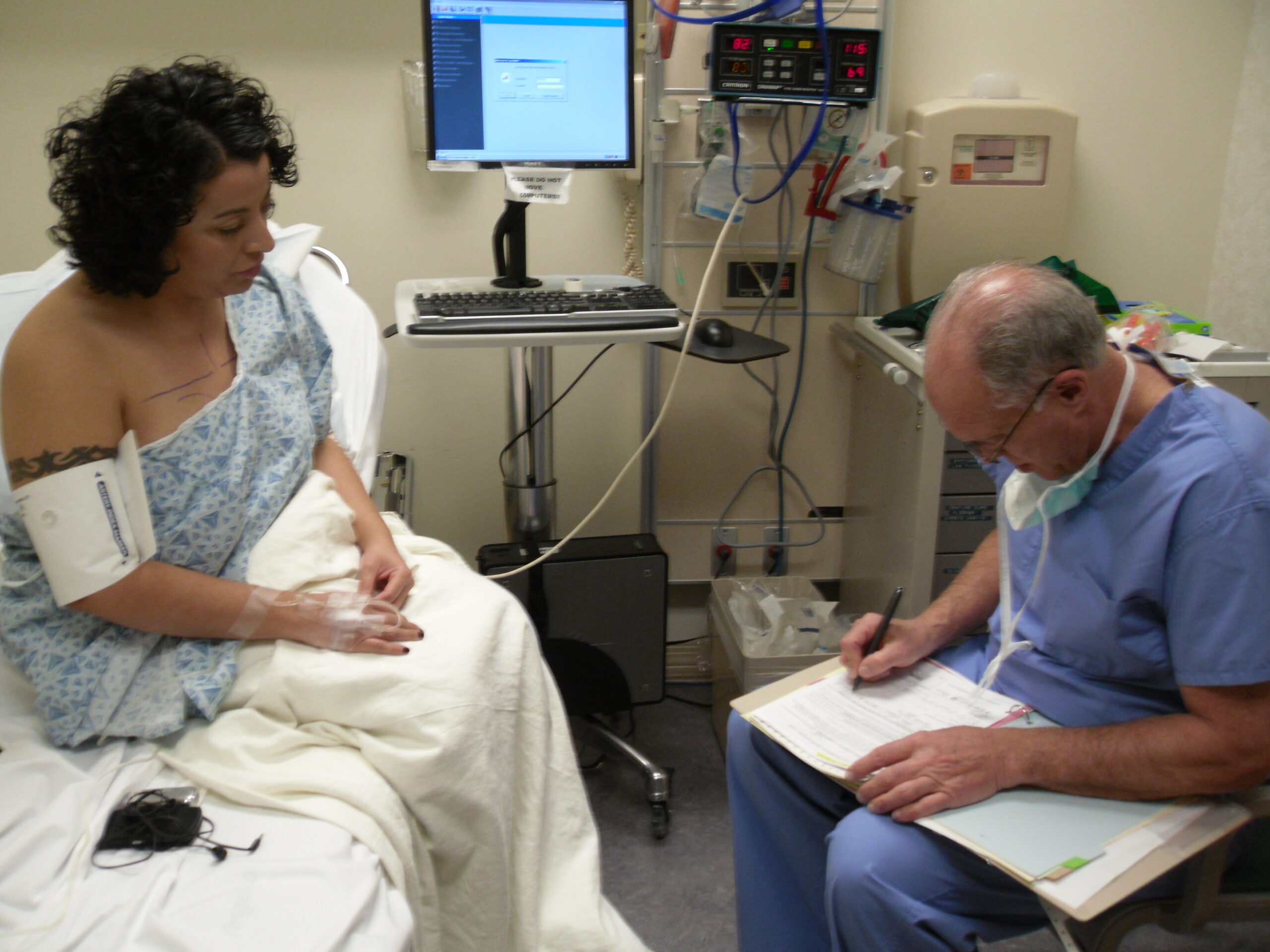
“I instantly felt fear and worry for my family. I knew that I needed to shift my mindset from worry to hopefulness and just powering through,” she says.
After going through treatment, Origel beat cancer. A year after treatment ended, her breast surgeon called her and asked if she could connect with a newly diagnosed cancer patient who was going through the same thing Origel went through and was scared.
“I went to meet this girl for coffee,” Origel says. “I was really nervous going into it and I just shared my story with her and acknowledged the fear and we had a heart-to-heart; lots of tears, lots of laughter and just being able to share the story woman-to-woman. The next day, [my surgeon] called me and said, ‘What did you do to her? Because she’s ready to go.’ Knowing that my story encouraged somebody to fight and give it their all—I found that to be incredibly healing.”
With her doctor, she helped more patients through simply talking and connecting with them, but it wasn’t until she lost her sister to metastatic breast cancer that the whole idea of Cancer Kinship came to be.
“Losing my sister was the hardest part of all of it. I wanted to make sure that nobody feels alone, even if they’re dealing with end-of-life,” Origel says. Her sister was the same age her mom was when she died.
There are a lot of programs to support early detection and encourage people to get screened, but what about after?
“I needed to figure out how to navigate through my grief, and I really started praying and trying to figure out what to do with my cancer survival. I had been a mentor for many years and didn’t really have the seed planted to formalize a program, but after going through the loss of my sister and dealing with survivor guilt, I got another phone call from [my surgeon to talk to another cancer patient],” Origel says.
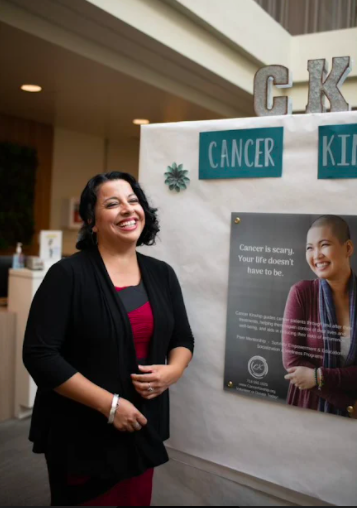
This time, Origel told her no at first. “I said, ‘I don’t think I could do this. I think this person is going to need to support me and I’m going to be this crying mess,” she shares. Eventually she did agree to mentor the woman, who is still her close friend today.
“That was like the a-ha moment,” Origel says. “The fact that I was still receiving phone calls 10, 12 years later. There wasn’t a formalized program that really addressed the emotional impact of cancer.”
She started brainstorming what Cancer Kinship could look like and started researching cancer survivorship. “There are a lot of programs to support early detection and encourage people to get screened, but what about after? How disruptive was cancer in their day-to-day lives? How does it affect their families? Their ability to work?” Origel says. She had more conversations with warriors and realized that mental health was still a big struggle after surviving cancer.
The organization hosts survivor empowerment education workshops and provides tools and knowledge to help cancer warriors transition from being vulnerable to empowered.
“One thing I remember when I was interviewing cancer patients and writing my business plan for Cancer Kinship is that they said they needed to have fun in such a way where [we’re] facilitating human connections,” says Origel.
The very first program that Cancer Kinship launched was called Painting Your Heart, which was in partnership with the company Painting Your Heart. Cancer warriors and thrivers would paint their feelings about what they went through during cancer treatment.
There’s something to visualizing and owning your story—remembering some of the traumatic parts of cancer survivorship as a way to not rehash it but to acknowledge it so that you can heal from it.
“There’s something to visualizing and owning your story—remembering some of the traumatic parts of cancer survivorship as a way to not rehash it but to acknowledge it so that you can heal from it,” says Origel.
A piece of advice from Origel? “We want to encourage people to get their screenings. The call to action is to stay active [and] address your mental health,” she says. “There is so much you can do to reduce your cancer risks and your cancer recurrence risks.”
To learn more about Cancer Kinship and its programs, visit cancerkinship.org.

